HIStalk Practice Interviews Evan Steele, CEO, SRSsoft
Evan Steele is CEO of SRSsoft of Montvale, NJ.
Tell me about yourself and the company.
I grew up in Long Island and now live in New Jersey. I am 47 years old, have been married for 22 years, and have two children, one a freshman in college and the other a freshman in high school. I am obsessed with productivity, even in my personal life. Little things that waste time drive me crazy. For example, when my wife and I prepare dinner together, I can’t resist commenting as she slices carrots one at a time while I am lining up bunches of five and cutting them with one chop.
After earning an MBA from Wharton, I spent a few years on Wall Street as an investment banker. I left banking, didn’t like the lifestyle, and went to work with my brother, managing his high-volume, multi-site ophthalmology practice in New York City. Based on that experience, in 1997 I started SRS, an electronic medical records company with a commitment to physician productivity, a focus that to this day underlies all of our product development efforts.
The first version of SRS had a huge and positive impact on the productivity of my brother’s practice by simply replacing productivity-sapping paper charts with highly efficient digital ones. His practice quickly became the model of efficiency for a high-volume specialty practice, so we started marketing the product to other physicians. Today, the SRS EHR is used by 5,200 providers, mostly specialists, in 49 states. Vermont is the holdout.
Thoma Bravo just invested in SRS. Why was the timing good for SRS and how will it impact the company?
The investment from Thoma Bravo will accelerate SRS’s growth and prosperity and help us build on the success we have achieved over the past 15 years. I’m a big fan of getting help from those who have more experience than I do. As SRS grows from 5,000 to 10,000 to 20,000 providers, we will benefit from their help in scaling the company so that we can continue to provide the excellent products and service that our clients have come to expect.
Thoma Bravo invests over $4 billion in technology companies like SRS. Their operating partners have vast experience in technology, finance, operations, sales, and marketing. Several of these talented individuals are now on the SRS board.
Thoma Bravo will provide significant guidance and financial support for acquisitions that will expand the breadth of the SRS product suite. We have already begun the search for companies to acquire that will offer significant benefits to our physicians.
You have been outspoken in your criticism of the Meaningful Use program. What concerns you most about the program?
It is true. I have not been shy about expressing my concerns regarding Meaningful Use. But first let me tell you what I like about the program. The incentives have definitely encouraged EHR adoption and the program has pointed the industry in the right direction in terms of interoperability by establishing standards that allow a physician using any certified EHR to communicate critical clinical information with physicians using any other certified EHR.
What concerns me most about the government’s Meaningful Use program is that it has sapped innovation out of the EHR marketplace, and it will continue to do so for the foreseeable future if CMS continues churning out overly complex rules. The government has set the development roadmap for all EHR companies with its Meaningful Use certification requirements and the compressed timeframe for development and implementation. As vendors burn through their precious development resources meeting the ever-expanding government standards instead of improving their core products, they are failing to respond to the needs of physicians.
Large vendors, by their nature, find it difficult to innovate, and they are so busy meeting all of the requirements that they have no time to step back and increase the usability of their software. Small vendors may be more flexible, but they don’t have any spare resources to direct toward innovation. There are very few mid-sized vendors like SRS that have nimble data and interoperability platforms written in the latest Web technologies. These companies are still innovating, albeit within the constraints of Meaningful Use-stressed resources.
My other big concern relates to the negative impact that Meaningful Use has on physicians, which has led to rampant dissatisfaction. As Meaningful Use has piled on requirement after requirement, physicians are drowning in program-related minutiae. Not understanding the complex requirements has kept many from even attempting to participate, and many who are managing to muddle through are suffering tremendous losses in productivity. Dissatisfaction is even greater among specialists. They were included as an afterthought in what is basically a primary care program, and many resent reporting on requirements that are irrelevant to their practices.
What efforts is the company making in terms of product usability and how do you see market demand affecting that?
Physicians are pining for what they deem “usable” EHR solutions. In a recent survey, almost 2,000 physicians were asked “Do you take more time to enter exam data into your EHR, compared to paper charts?” A full 73 percent answered yes. In what other industry does technology replace paper and leave three quarters of its users with productivity reductions? Online bill payment is faster than paper checks, envelopes, and stamps. Googling an article is faster than wrestling with the microfiche in the library. Sending an e-mail is faster than snail mail. Yet most electronic health record systems are actually slower than inefficiency-laden paper charts.
At SRS, we define usability as meeting the data and quality measurement needs of physicians while increasing their productivity. Poorly designed EHRs that waste physicians’ time drive them nuts. At SRS, we have over 50 developers and a staff of business analysts who devote an inordinate amount of time analyzing how physicians think and work, all before the first line of code is written. We obsess about things like minimizing clicks, using screen real estate efficiently, limiting unnecessary pop-ups, and providing keyboard shortcuts for repetitive tasks, all of which improve physician productivity. This ensures that our software is the most intuitive, the most ergonomic, and the most efficient for the physicians.
How are specialists’ EHR needs different from those of primary-care physicians?
Specialists typically see higher volumes and generate more revenue per patient visit. They are more significantly affected by small changes in productivity. Consequently, a productivity-focused EHR is vital to serving the increasing demands of a growing patient base and to maintaining physicians’ incomes. Also, specialists largely provide episodic care, and therefore up to a third of their visits are with new patients. This means that a specialist EHR needs to be really efficient at new patient intake. Unfortunately, most EHRs in the marketplace were designed for primary care physicians. This makes it very challenging for specialists.
Which companies are your most direct competitors and why do you think your offerings are superior?
The competition in the high-performance specialist market is highly fragmented and there is no single competitor with which SRS competes regularly. The SRS offering is superior in terms of usability, speed, and focus on productivity, as evidenced by the testimonials on our website and the increase in sales of our EHR as a replacement for existing software. Using my carrot-cutting strategy as an analogy, SRS is the five-carrot EHR in a world of one-carrot technologies.
Another factor contributing to SRS’s success is that our clients are universally happy with their EHR and therefore promote SRS among their colleagues. We have been very successful at creating an amazing client experience by investing heavily in our eager-to-please support staff and our topnotch, on-site developers, both of which have earned us the highest ratings for customer service and satisfaction.
Our entire support team is located at our corporate headquarters. They are a highly certified technical team, holding 53 Microsoft certifications collectively, which means that when they get on the phone, they provide the technical expertise required to answer virtually any client question. They clearly provide a superior experience compared to many of our competitors that have overseas support reps who read from a script, often a very frustrating experience for the caller. We have an open checkbook policy in our support department to ensure that we deliver the highest level of client support in the industry.
Our entire development team is also located in our office. Because we are a stone’s throw from New York City, we draw software development talent from a vast metropolitan area and can attract some of the best and the brightest in the industry.
As more EHR vendors consolidate, how will your business be impacted?
Vendor consolidation will result in increased sales for SRS, as physicians will seek more appropriate alternatives when they are not satisfied with the EHR that is foisted upon them when their original vendor is acquired and their technology is phased out.
How much of your business is driven by product replacement and what factors cause the practices to seek new vendors?
Thirty-one percent of 2012 new license sales were replacements and 46 percent of our sales pipeline is replacements. We had always anticipated that this would occur, but we didn’t expect that it would happen so soon.
The primary factor causing practices to seek new vendors is the sharp loss of productivity stemming from their existing EHR systems. Accelerating the replacement trend is the fact that physicians rushed to purchase EHR systems so they could get their Meaningful Use incentives, and in their rush to purchase, they did not do the proper due diligence to find out whether their EHR was appropriate for their practices. Our sales pipeline is filled with large specialty practices that ran out and purchased popular, primary care-focused EHRs only to find out after suffering the pains of implementation that there is not a lot of success with those products among physicians in their particular specialty. These practices are desperate to get out from under the productivity-sapping effects of their EHRs.
Where do you see yourself and the company in five years?
I will still be In Montvale, NJ, serving as the CEO and chairman of the board of SRS. SRS will still be a key player in the HIT industry, one of the survivors of the inevitable shakeout that will occur. The winners will be the few EHR vendors that improve quality of care while increasing physician productivity.


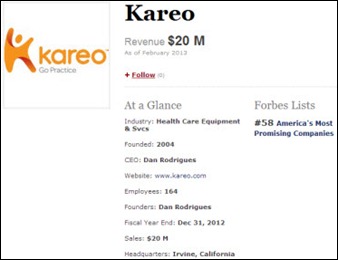

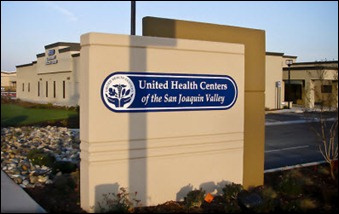

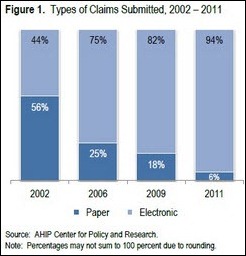

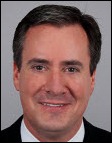


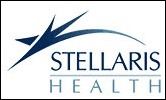

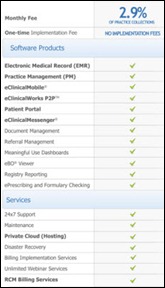



The article about Pediatric Associates in CA has a nugget with a potentially outsized impact: the implication that VFC vaccines…